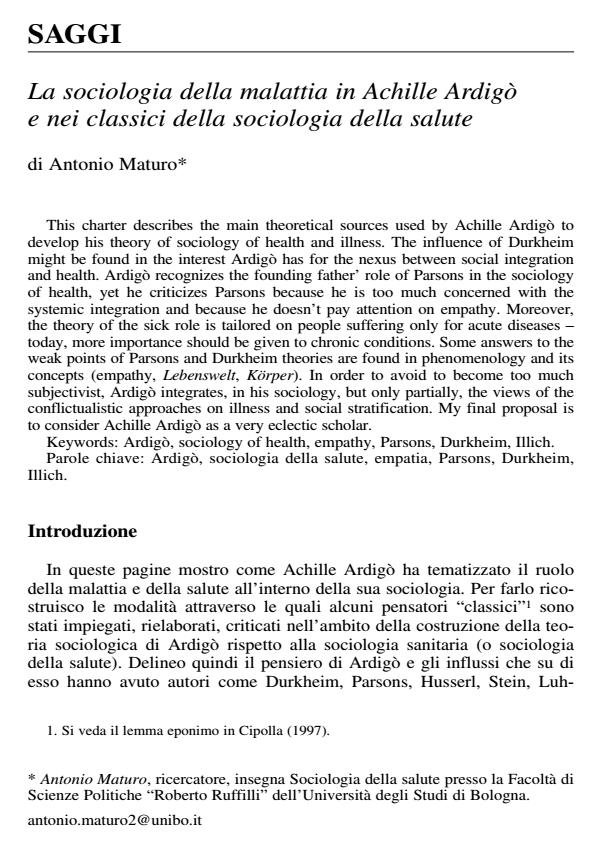La sociologia della malattia in Achille Ardigò e nei classici della sociologia della salute
Journal title SALUTE E SOCIETÀ
Author/s Antonio Maturo
Publishing Year 2009 Issue 2009/Suppl. 2
Language Italian Pages 17 P. 57-73 File size 93 KB
DOI 10.3280/SES2009-SU2003
DOI is like a bar code for intellectual property: to have more infomation
click here
Below, you can see the article first page
If you want to buy this article in PDF format, you can do it, following the instructions to buy download credits

FrancoAngeli is member of Publishers International Linking Association, Inc (PILA), a not-for-profit association which run the CrossRef service enabling links to and from online scholarly content.
La sociologia della malattia in Achille Ardigò e nei classici della sociologia della salute - This charter describes the main theoretical sources used by Achille Ardigò to develop his theory of sociology of health and illness. The influence of Durkheim might be found in the interest Ardigò has for the nexus between social integration and health. Ardigò recognizes the founding father’ role of Parsons in the sociology of health, yet he criticizes Parsons because he is too much concerned with the systemic integration and because he doesn’t pay attention on empathy. Moreover, the theory of the sick role is tailored on people suffering only for acute diseases - today, more importance should be given to chronic conditions. Some answers to the weak points of Parsons and Durkheim theories are found in phenomenology and its concepts (empathy, Lebenswelt, Körper). In order to avoid to become too much subjectivist, Ardigò integrates, in his sociology, but only partially, the views of the conflictualistic approaches on illness and social stratification. My final proposal is to consider Achille Ardigò as a very eclectic scholar.
Keywords: Ardigò, sociology of health, empathy, Parsons, Durkheim, Illich.
Parole chiave: Ardigò, sociologia della salute, empatia, Parsons, Durkheim, Illich.
Antonio Maturo, La sociologia della malattia in Achille Ardigò e nei classici della sociologia della salute in "SALUTE E SOCIETÀ" Suppl. 2/2009, pp 57-73, DOI: 10.3280/SES2009-SU2003